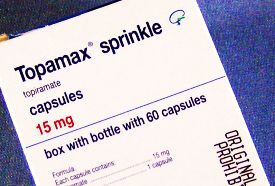Children’s Headaches – Should I Consider a Preventative Medication?
It’s a challenge to diagnose headache disorders, especially in younger children. But it’s becoming clear that it’s important, and more and more research is being done to help fight pediatric headaches.
Headaches are surprisingly common in children.
 |
The catch is that sometimes even the children don’t really know how bad they are. The matter is further complicated when it comes to issues like migraine, where the symptoms can be so varied. Many people with migraine simply "don’t feel well", and have very little actual head pain. In children, abdominal migraine is common, where nausea may be the main symptom and the pain may be in the stomach.
It takes time to work with your doctor and child to uncover the symptoms and find a good treatment. But it’s important to do so. Catching headache disorders early can help avoid later complications. And children with frequent headaches can have extra trouble at school that can leave them farther behind than they need to be.
A preventative medication is something that your doctor may recommend if the headaches are frequent. The good news is, many medications have been found to really help children with migraine.
Some of the common medications that have helped children include:
- Propranolol: A beta-blocker. Some brand names include Inderal, Avlocardyl, Inderalici, InnoPran XL, and Sumial
- Flunarizine: A calcium-channel blocker. Brand names include Adalat, Cardizem, Isoptin, Nimotop, and Sibelium.
- Topiramate: An anticonvulsant drug. Brand name Topamax.
- Sodium valproate: An anticonvulsant. Brand names include Depakote, Epilim, Orlept, and Epival.
- Amitriptyline: A tricyclic antidepressant. Brand names include Vanatrip, Elavil, and Endep.
Here are some things you and your doctor will want to consider when thinking about preventative medications:
- How disabling are the symptoms? How often is the child having attacks? How is this impacting their daily life?
- Are there other symptoms or co-existing disorders that could potentially be treated with the same medication? (For example, nausea, epilepsy, etc)
- What are common risks and side effects associated with this medication? How will your doctor help you watch for these things over time?
- Will a preventative medication help the child cut down on abortive medications? If you are giving your child "painkillers" more than twice a week, it’s very important you look for other options.
- Is there a trial period? Is there a time when we could try taking the child off the preventative in the future?
- What other treatments can be used alongside of (or instead of) the preventative medication? For example, changes in diet, biofeedback, an exercise program, CoQ10 etc.
In certain cases, preventative medications have helped children effectively fight headache and migraine symptoms. But do your homework, and remember that this is something you need to take one step at a time. Don’t expect an instant cure-all. But do expect to find a combination of treatments that works well.

